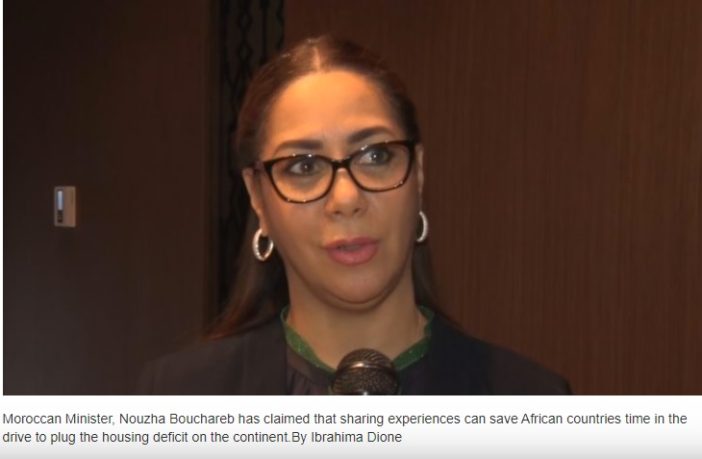by APA News
Moroccan Minister, Nouzha Bouchareb has claimed that sharing experiences can save African countries time in the drive to plug the housing deficit on the continent.By Ibrahima Dione
The Moroccan Minister of National Land Use Planning, Urbanism, Housing and Urban Policy, Nouzha Bouchareb during an interview with APA on the sidelines of the Dakar International Housing Fair, invited African countries to share the results of the implementation of housing programmes in order to save time for other countries.
“Many African countries, particularly Senegal, have a common vision of putting the citizen at the centre of development through decent housing and a healthy living environment. This should normally translate into unified programmes that take into account the specificities of each country. Moreover, when a state is well advanced on a programme, sharing results and best practices can save time for other countries,” she argued.
Ms. Bouchareb indicated that “Morocco has balanced relations with African countries and has no lessons to give.”
A graduate of the Mohammadia Engineering School, specializing in environment and territorial development, Bouchareb said she was satisfied with the good health of Morocco’s housing sector.
“It currently represents about 6.3 percent of the kingdom’s GDP. The housing sector contributes to the maintenance of economic dynamism with the creation of one million jobs,” she said.
She added that “13.8 million tons” of cement meeting the needs of the housing market are produced in Morocco.
At the head of this strategic department since October 9, Bouchareb claimed that Morocco’s policies have borne fruit.
“With the cities without shantytowns” scheme, 59 cities out of a total of 85 no longer have unhealthy housing, she said adding that the scheme has impacted more than 1.5 million people.
“We have gone from a housing deficit of 1.2 million to now 400,000. The curve is being stabilised” she added.
Finally, Bouchareb, a convinced women’s rights activist said she “cannot imagine development without the involvement of women in the formulation of public policies.”







